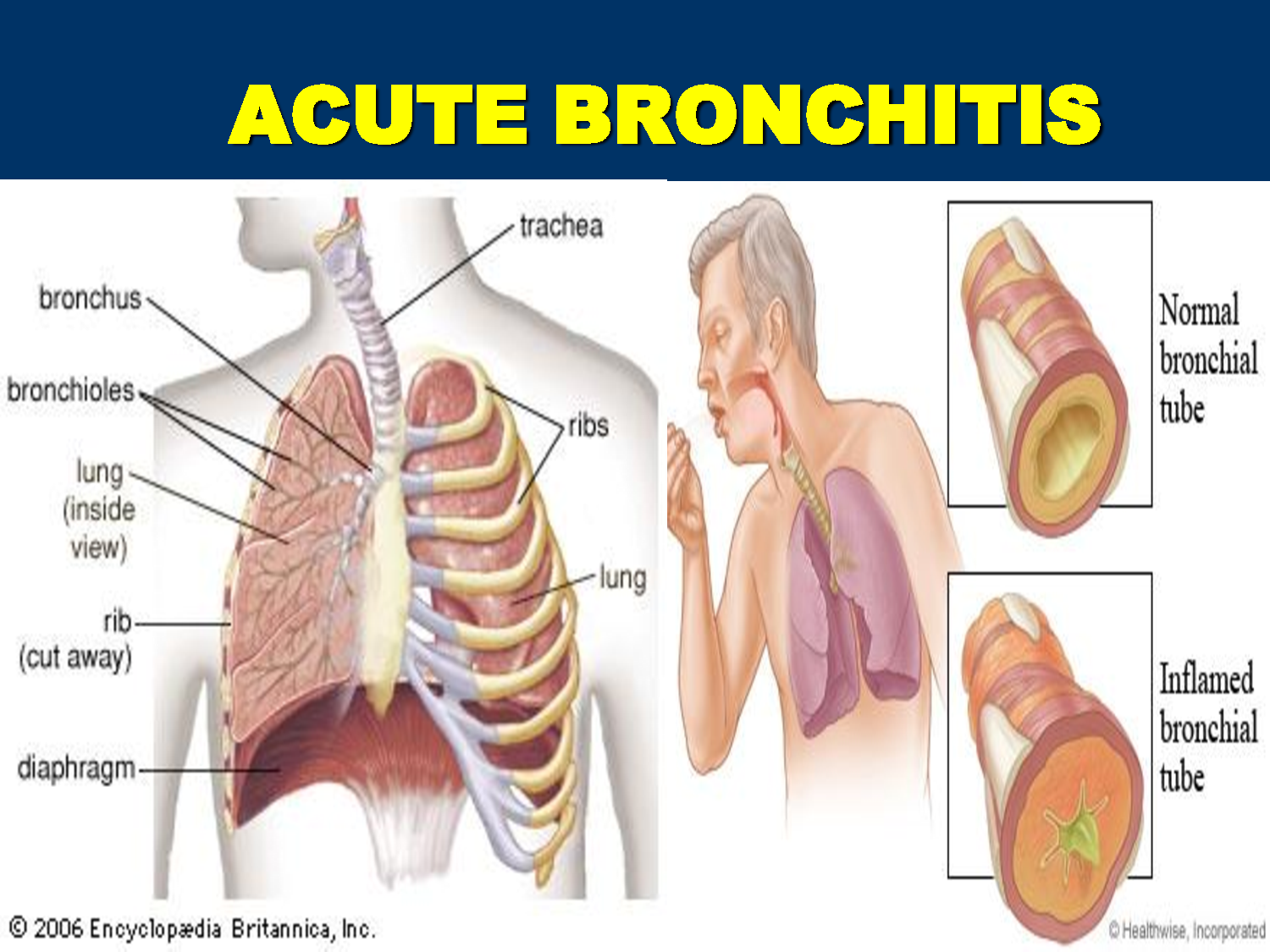Dealing with bronchitis can be a challenging experience, especially when the symptoms begin to interfere with daily life. Many individuals find themselves questioning how they developed this respiratory condition and what they can do to alleviate its effects. For those who have recently exclaimed, "I got bronchitis," understanding the nuances of this illness is crucial to managing it effectively. Bronchitis, which is characterized by inflammation of the bronchial tubes, can manifest in two forms: acute and chronic. Acute bronchitis typically follows a respiratory infection, while chronic bronchitis is a long-term condition often linked to smoking or prolonged exposure to irritants. Knowing the differences can help individuals better navigate their health journey.
In this article, we will explore the various aspects of bronchitis, including its causes, symptoms, and treatments. If you or someone you know has recently experienced the discomfort of bronchitis, understanding the condition can provide clarity and lead to better health outcomes. From recognizing the signs to seeking appropriate medical help, we will cover everything you need to know about "I got bronchitis."
Join us as we delve into the world of bronchitis, offering insights and tips for those affected. Whether you're seeking to educate yourself or simply looking for ways to support a loved one, this comprehensive guide will provide valuable information and resources to navigate this respiratory challenge.
What Exactly Is Bronchitis?
Bronchitis is an inflammation of the bronchial tubes that carry air to and from the lungs. This inflammation can lead to coughing, wheezing, and difficulty breathing. There are two primary types of bronchitis: acute bronchitis, which is usually caused by viral infections, and chronic bronchitis, which is a long-lasting condition often linked to smoking or exposure to pollutants.
What Are the Symptoms of Bronchitis?
Symptoms of bronchitis can vary depending on whether it is acute or chronic. Common symptoms include:
- Coughing, which may produce mucus
- Shortness of breath or wheezing
- Chest discomfort
- Fatigue and mild fever
How Do You Get Bronchitis?
The causes of bronchitis can differ based on its type. Acute bronchitis is often triggered by viral infections, similar to those that cause colds or the flu. Chronic bronchitis, on the other hand, is primarily caused by long-term exposure to irritants such as smoke, dust, or chemicals.
How Is Bronchitis Diagnosed?
When someone states, "I got bronchitis," they may be wondering how the diagnosis was made. Healthcare providers typically diagnose bronchitis through a combination of medical history, physical examinations, and diagnostic tests. These tests may include:
- Chest X-rays to rule out other conditions
- Pulmonary function tests to assess lung capacity
- Sputum tests to identify infections
What Are the Treatment Options for Bronchitis?
Treatment for bronchitis depends on its type and severity. In most cases of acute bronchitis, treatment focuses on relieving symptoms. Common approaches include:
- Drinking plenty of fluids to stay hydrated
- Using over-the-counter medications like cough suppressants or pain relievers
- Inhaling steam or using humidifiers to ease breathing
For chronic bronchitis, treatment may involve more long-term strategies, such as:
- Quitting smoking and avoiding irritants
- Using bronchodilators or inhaled steroids
- Participating in pulmonary rehabilitation programs
When Should You Seek Medical Attention for Bronchitis?
If symptoms worsen or do not improve after a few weeks, it is essential to consult a healthcare provider. Additional warning signs that may require immediate medical attention include:
- High fever lasting more than three days
- Severe shortness of breath
- Chest pain or tightness
Can Bronchitis Be Prevented?
While not all cases of bronchitis can be prevented, certain measures can reduce the risk. These include:
- Avoiding smoking and secondhand smoke
- Practicing good hand hygiene to prevent infections
- Getting vaccinated against flu and pneumonia
Living with Bronchitis: Tips for Management
If you find yourself saying, "I got bronchitis," it can be helpful to implement some lifestyle changes to better manage the condition. Here are some tips:
- Stay active with light exercises to improve lung function
- Follow a healthy diet rich in fruits and vegetables
- Ensure adequate rest to aid recovery
What Should You Know About Long-Term Effects?
Chronic bronchitis can lead to long-term respiratory issues if not managed correctly. Therefore, it is crucial to follow treatment plans and make lifestyle modifications to prevent complications. Regular check-ups with a healthcare provider can help monitor the condition and adapt treatment as needed.
In conclusion, if you find yourself saying, "I got bronchitis," it is essential to understand the condition, its causes, and its treatments. By educating yourself and taking proactive steps, you can manage the symptoms and lead a healthier life despite the challenges of bronchitis.
You Might Also Like
Jack Forest Blocker: The Man Behind The ForestsDiscover The Charm Of Regal Pointe Orlando
Discovering The Charm Of Palihouse West Hollywood
Discovering Wavy TV 10: A Hub Of Local News And Entertainment
Exploring The Mid 90s Cast: A Nostalgic Journey Back In Time
Article Recommendations
- Ashley Park Disney Channel
- Gabriela Sabatini
- Robert Bovard Age
- Laura Cover
- Rick Hoffman Wife
- Susan Mikula And Rachel Maddow Wedding
- Zhao Lusi Relationships
- Camila Araujo Leaks
- Alaina_elliss Leaked
- Lina Marcela Medina De Jurado


/cloudfront-us-east-1.images.arcpublishing.com/eluniverso/3NLN5AQIAVHQJE7J25ETCCNIFM.jpeg)